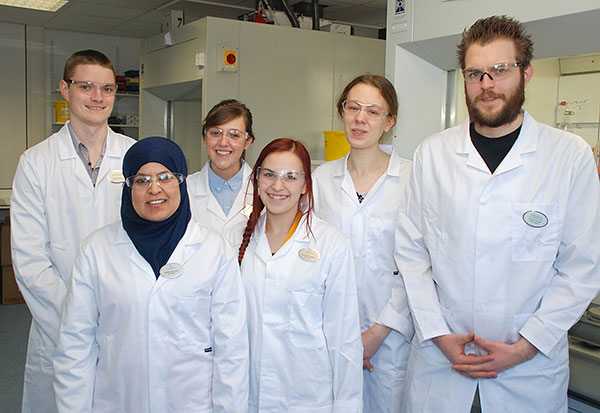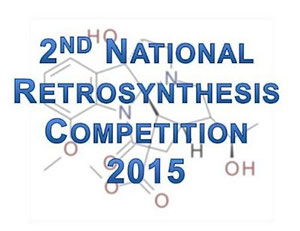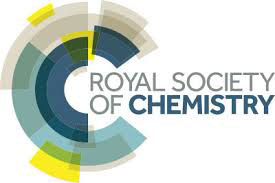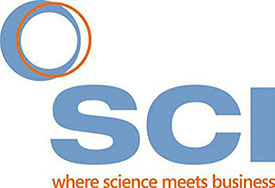Hudds chemistry grads and undergrads in RSC/SCI national final
 Pictured above is team captain Dr Ian Pocock (far right) with team members (l-r) Adam Clayton, Marwa Aborways, Scarlett Walton, Georgina Armitage and Laura Denman.
Pictured above is team captain Dr Ian Pocock (far right) with team members (l-r) Adam Clayton, Marwa Aborways, Scarlett Walton, Georgina Armitage and Laura Denman.
Wed, 11 Feb 2015 16:00:00 GMT
University team shares good company in National Retrosynthesis Competition held later this month
 CHEMISTRY students and researchers at the University of Huddersfield have used their combined knowledge and brainpower to reach the final of an elite competition.
CHEMISTRY students and researchers at the University of Huddersfield have used their combined knowledge and brainpower to reach the final of an elite competition.
The Huddersfield team will attend the final of the second National Retrosynthesis Competition, organised by the Royal Society of Chemistry (RSC) and the Society of Chemical Industry (SCI). It takes place at the RSC’s headquarters in Burlington House, London, on 27 February. They will give a live presentation to a judging panel consisting some of the UK’s leading academic and industrial chemists, and the top three teams will win cutting-edge scientific equipment plus special trophies.
Over 50 teams entered in total, with just ten being chosen to go through to the final. The finalists will represent universities including Oxford, Bristol and Manchester, the Institute of Cancer Research, and multinational companies such as Syngenta, GSK and Pfizer.
 Huddersfield team captain Dr Ian Pocock – who studied for his PhD at the University – is currently working with Dr Duncan Gill on a Leverhulme Trust-funded project. He will be joined by chemistry undergraduates Adam Clayton and Laura Denman, together with PhD researchers Marwa Aborways, Georgina Armitage and Scarlett Walton, representing the Gill, Sweeney, Moran, Gabbutt and Heron research groups within the Department of Chemical Sciences.
Huddersfield team captain Dr Ian Pocock – who studied for his PhD at the University – is currently working with Dr Duncan Gill on a Leverhulme Trust-funded project. He will be joined by chemistry undergraduates Adam Clayton and Laura Denman, together with PhD researchers Marwa Aborways, Georgina Armitage and Scarlett Walton, representing the Gill, Sweeney, Moran, Gabbutt and Heron research groups within the Department of Chemical Sciences.
Their team is punningly named You’ve Never Hud It So Good, a reference not just to ex-Prime Minister Harold MacMillan’s famous phrase, but to Princeton chemist and University of Huddersfield international advisory board member, Professor David MacMillan, whose work inspired the team’s first round entry.
The quality of Huddersfield chemistry
 In order to make the final, the team had to devise a sequence of chemical processes to make a complex natural substance that has only recently been discovered. Ian explained: “It’s a paper exercise, so we didn’t go in the lab to try to make the compound for real. Instead, we had to convince the judges that our solution was innovative and elegant, and most importantly, would be likely to work!”
In order to make the final, the team had to devise a sequence of chemical processes to make a complex natural substance that has only recently been discovered. Ian explained: “It’s a paper exercise, so we didn’t go in the lab to try to make the compound for real. Instead, we had to convince the judges that our solution was innovative and elegant, and most importantly, would be likely to work!”
Once the team qualified for the final, they were given another even tougher molecule to tackle. “It’s called retrosynthesis because we work backwards. We start with the target structure and then try to dismantle it into simpler building blocks, whilst thinking what chemical reaction we would need to do the ‘forward’ sense. It’s a bit like trying to find your way out of a maze, as you might have to try quite a few things before you come up with a workable route,” said team member Scarlett Walton.
Professor Joe Sweeney, Head of the Department of Chemical Sciences is delighted by their success in the face of intense competition from world-leading chemistry departments. “The ability to rationally design methods to make both natural medicines and previously unimagined analogues is a key skill in the fight against ‘undruggable’ diseases,” he said.
“Retrosynthesis is one of the key skills that organic chemists use to make such important novel molecules; the success of our team in reaching the final of a national competition in this area is a fantastic testament to intellectual ability of our chemistry students and researchers. When I look at the universities we have beaten to make the shortlist, I feel immensely proud of both my colleagues and the statement this makes about the quality of Huddersfield chemistry.”







